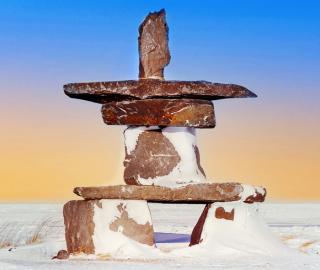International Inuit Day
Annually, International Inuit Day is recognized on November 7 as declared at the 2006 Inuit Circumpolar Council (ICC) General Assembly in Barrow, Alaska to honour the birth date of Inuit Circumpolar Council visionary, Eben Hopson, Sr.
Inuit are one of three recognized Indigenous groups in Canada under the Canadian Constitution Act. Inuit are distinctive Arctic Indigenous Peoples with a unique and dynamic culture and history. The word Inuit means "people" and a single person is known as an Inuk.
The 2021 Canadian Census counted 1.8 million Indigenous people, accounting for 5.0% of the total population of Canada, up from 4.9% in 2016. In 2021, there were 70,545 Inuit living in Canada, with just over two-thirds (69.0%) living in Inuit Nunangat – the homeland of Inuit in Canada. The Inuit population living outside Inuit Nuangat grew at a faster pace than the population within the Inuit homeland (+23.6% versus +2.9) (Census Canada, 2021).

The majority of Inuit in Canada live in the four Inuit regions, collectively known as Inuit Nunangat. From East to West the four Inuit regions are Nunatsiavut (Northern Labrador), Nunavik (Northern Quebec), Nunavut, and the Inuvialuit Settlement Region (Northwest Territories).
We acknowledge and honour the vibrant culture and rich history of Inuit communities in Canada and around the world. Join us in celebrating and learning more about some of the significant contributions of the Inuit People. International Inuit Day also represents one of many steps on Canada’s journey of healing and reconciliation with Indigenous people and responds to the Truth and Reconciliation Commission’s Calls to Action.
